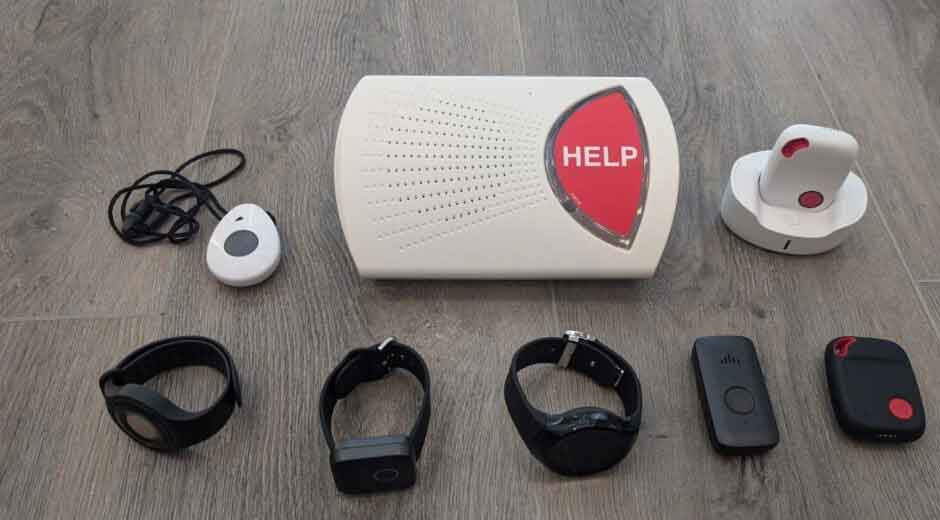The Ultimate Guide to Finding the Best Medical Alert for Your Needs

When it comes to ensuring the safety and peace of mind of yourself or a loved one, a medical alert system is often an essential tool. Whether it’s for older adults, individuals with medical conditions, or anyone at risk of an emergency, the right medical alert can make all the difference. With so many options available, how do you choose the best one?
Understanding Medical Alert Systems
Medical alert systems are designed to provide quick access to help in emergencies. They typically consist of a wearable device, such as a pendant or wristband, that can be activated with a press of a button. When activated, these systems notify a response center, where trained professionals can assess the situation and dispatch help as needed. This might include contacting family members, emergency responders, or even providing immediate medical support, depending on the service and the situation.
Key Features to Look for in the Best Medical Alert Systems
Not all medical alert systems are created equal. When searching for the best one for your needs, consider these important features to ensure you choose a reliable and effective option.
1. 24/7 Monitoring and Emergency Response
One of the most critical aspects of a medical alert system is its ability to provide continuous monitoring. Emergencies don’t always happen between 9 a.m. and 5 p.m., which is why it’s essential that the system you choose operates 24/7. Look for systems that offer around-the-clock monitoring with a quick response time. In times of crisis, every second counts, so you want to ensure help is available at any hour.
2. Range and Coverage Area
The range of your medical alert system is crucial, especially if the person wearing it is active around the house or outdoors. Some systems only work within the confines of a home, while others offer greater range to ensure that help can be reached even if the user is in the yard or walking around the block. It’s worth considering whether a mobile or in-home system fits better, based on the user’s lifestyle.
3. Water Resistance
When looking for the best medical alert system, water resistance is key. Many emergencies can happen near water, whether it’s in the bathroom, swimming pool, or during outdoor activities. A water-resistant or waterproof medical alert device can save the day in these situations. Look for systems that are specifically designed to withstand water exposure without compromising their functionality.
4. Automatic Fall Detection
Falls are one of the most common reasons people activate their medical alert devices. Many modern systems now include automatic fall detection, which senses when a user falls and triggers an alert to the monitoring center. This can be especially helpful for individuals with mobility challenges or cognitive impairments who may not be able to press the button themselves.
5. Battery Life
The battery life of a medical alert system is essential to consider, particularly if it’s being used by someone who might forget to charge it regularly. Some systems offer extended battery life, while others need to be charged more frequently. Always check the battery life specifications to ensure it fits with the user’s habits and expectations.
Additional Considerations When Choosing the Best Medical Alert System
While the core features mentioned above are fundamental, there are several additional factors that could make a big difference in the overall effectiveness of a medical alert system.
1. Ease of Use
Medical alert systems should be simple and intuitive to use. For older adults or individuals with cognitive impairments, it’s crucial that the device is easy to operate. Whether it’s a large, easy-to-press button or a voice-activated feature, the more user-friendly, the better. Complex systems can cause frustration and may delay emergency response when it’s needed most.
2. Mobile Capabilities
For those who spend time away from home, mobile medical alert systems offer extra peace of mind. These systems typically use GPS technology to pinpoint the wearer’s location and can be used in various settings, such as running errands or traveling. If mobility is a concern, look for a device that integrates both location tracking and emergency support on the go.
3. Monthly Subscription Costs
Medical alert systems often come with a monthly subscription fee for the monitoring services. While some systems offer a one-time purchase with no ongoing costs, most require a recurring payment. When evaluating options, compare the monthly fees, what they include, and whether they offer good value for the level of service provided. Don’t forget to factor in any hidden costs, such as equipment charges or cancellation fees.
4. Customer Support and Service
Good customer support is essential for troubleshooting any issues with the system. Look for a provider that offers prompt and responsive customer service, especially during setup or in case of an emergency. Some systems also provide tech support to help with the installation of new equipment or software updates, which can be a huge benefit.
Popular Types of Medical Alert Systems
There are two primary types of medical alert systems: in-home and mobile. Let’s break down each type to help you decide which one suits your needs.
In-Home Systems
These systems are typically designed for use within the home and feature a base station that communicates with the monitoring center. They may include additional sensors, like fall detection or door sensors, to help caregivers keep track of their loved ones. In-home systems are ideal for individuals who mostly stay at home but still need a safety net in case of an emergency.
Mobile Systems
Mobile medical alert systems are portable, typically in the form of a necklace, wristband, or clip-on device, and are often equipped with GPS tracking. These systems are perfect for individuals who are frequently out of the house or want the ability to summon help from virtually anywhere. Many mobile systems also include fall detection, two-way communication, and voice activation, making them incredibly versatile.
Don’t Wait Until It’s Too Late
When it comes to your health or the health of a loved one, waiting until an emergency occurs is never the best option. Taking action now, and selecting a medical alert system that suits your specific needs, can be the difference between a timely response and a situation becoming much worse. Make the decision today and ensure the safety of those who matter most.


